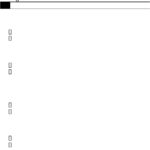These small business accounting tips will help you improve your chances of business success by being better at financial management. Small business owners need financial backing and/or loans for startup capital, marketing campaigns, and other initial things in the early days. To make sure the loans don’t appear in the receivables, use software that separates income from borrowed funds.
- Creating a budget for expenses like office supplies, inventory and repairs and maintenance can help your business function efficiently.
- In addition to automating accounts payable and accurately tracking and balancing your books, cloud-based accounting software can often integrate with the other software you use.
- If vendors offer discounts for early payments, you may want to take advantage to reduce costs.
- Although many entrepreneurs self-fund their businesses, business revenue and expenses must be kept separate from personal finances.
• Set Up Separate Bank Accounts
While you don’t want to start the debt collection process too soon, you must ensure you get paid. We have financial relationships with some companies we cover, earning commissions when readers purchase from our partners or share information about their needs. Our editorial team independently evaluates and recommends products and services based on their how accounting ratios and formulas help your business research and expertise. You can save your company by implementing simple bookkeeping strategies. Getting a business bank account is one of the first steps you should take as a small business owner. Sage Business Cloud Accounting starts at $10/ month, but for complete accounting functionality, you’ll want to choose the full-service plan at $25/month.
Calculate total labor costs before you hire.
The general ledger is a collection of accounts that display the changes made to each account based on past transactions, along with the current balances in each account. It’s important to create a budget and businesses that do generally report better financial results, according to various government and Federal Reserve studies. Those without a budget may not see a problem until a cash crunch arises.
Daily business accounting tasks
Establishing robust accounting practices and processes can help small businesses be more financially organized, tax-ready, and profitable in the long run. Simplify business finances by automating manual workflows and processes to save precious time and resources. One of the easiest ways to do so is with accounting software that fits your business needs and budget. Make your life easier by using a unified accounting project management solution to track expenses, generate custom reports, and send invoices automatically. The majority of your financial transactions will have to do with income and expenses. Knowing how to handle these two items will ensure that your business runs smoothly.
Create Profit and Loss Statements
You should make sure you’re aware of the sales tax laws in your home state and for each state where you sell by obtaining copies of tax rules from a state’s department of taxation or revenue. You can also use software specializing in sales tax collection for small businesses, particularly ecommerce businesses doubtful accounts and bad debt expenses that sell in many states. Sending invoices automatically can streamline billing and save time and resources. For example, you could set up a program using invoicing software to automatically send an invoice within 48 hours of a sale, followed by timed payment reminders and overdue notices if needed.
Business transactions are recorded in a journal (also known as Books of Original Entry) in a chronological order using the double-entry bookkeeping system. A small business owner should have a budget for projected revenue and expenses, then check it periodically against actual results. Budgeting helps small businesses analyze operations to improve cost efficiency, as well as find possible opportunities for expansion. Few small business owners are accounting experts, but to be successful, it helps to know a little about how to do accounting for a small business.
Generating and analyzing financial reports helps you keep a close eye on your cash flow, file your taxes correctly, and measure your business’s overall financial health. These numbers help you secure investors, make smarter business decisions, and discover new ways to grow your business. Running a small business comes with many responsibilities—and keeping accurate financial records fixed asset accounting made simple is one of them. Bookkeeping might seem intimidating at first, but it’s essential for your business’s success. It helps you track your income and expenses, keep an eye on your financial health, and make informed decisions. Since good record keeping relies on accurate expense tracking, it’s important to monitor all transactions, keep receipts, and watch business credit card activity.
But as soon as you see growth in your company, it will soon be essential to have a highly detailed, consistent bookkeeping approach. When hiring external team members, keep in mind that some of the responsibility still falls to you as the proprietor. Professional bookkeepers and accounting professionals are available to manage, track, and report on financial activities.
With this support, you can understand your business’s financial health at a glance and focus your energy other tasks. A small business loan may support you when starting up or investing in growth resources. To qualify for a business loan, you’ll need to provide a lender with accurate records of your business’s financials. Financial statements, such as a balance sheet, income statement, and cash flow statement may be necessary.
If you’re using accrual, or double-entry accounting, you will need to understand the accounting equation and debits and credits, which are the backbone of any accounting system. Keeping an up-to-date P&L statement allows you to quickly get a snapshot of the overall health of your business at any time,” says Roxana Zaman, co-founder and COO of Maple. It’s very important that you form your small business correctly, as your taxes will be affected differently depending on how your business is structured.
When deciding on a software, consider which features you need and how much you’re willing to spend. Compare the different options and find the best fit for your business. A user-friendly option for small business accounting, FreshBooks makes it easy to track income and expenses and includes a self-employed version just for you. Before you can start recording any financial transactions, you’ll need to create a chart of accounts for your company. The chart of accounts is a list of accounts in your general ledger that will be used to record financial transactions. As a small business owner, you have the option of hiring an accountant, recording transactions by hand or using an accounting software to record your business transactions.
Keep a record of each of your vendors that includes billing dates, amounts due, and payment due dates. If vendors offer discounts for early payment, you may want to take advantage. Accountants are members of statutory organizations and registered accountants might call themselves CPAs (Certified Public Accountants) or CAs (Chartered Accountants). They are primarily responsible for preparing statutory returns, advising on legal entity structure and giving general business advice. The difference between the two methods is how they record the inflow and outflow of cash. Schedule regular exercise breaks to boost blood flow, reduce stress, and elevate energy levels.
Most accounting software automates entering information from the documents above. For instance, receipt scanners let you take photos of receipts that you upload to your software for easy journal-entry generation. And if you send invoices or pay bills with your software, the numbers should sync automatically with your ledger.
From managing your taxes to generating financial reports, our business accounting software can make running your business easier than ever. Take a look at the accounting duties you will have to manage for your business below. Bookkeeping is the process of recording all your business’s financial transactions systematically. It involves tracking income, expenses, assets, liabilities, and equity.



Leave A Comment